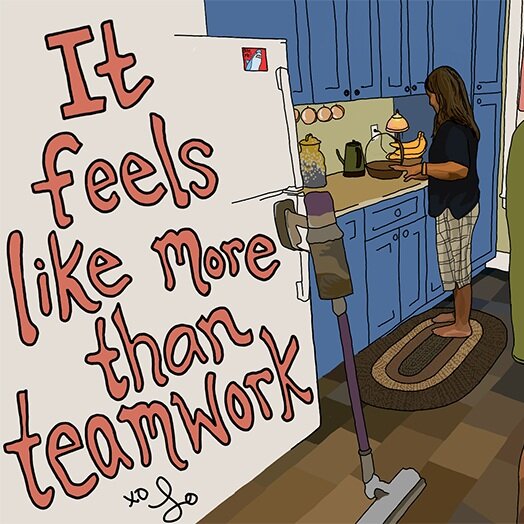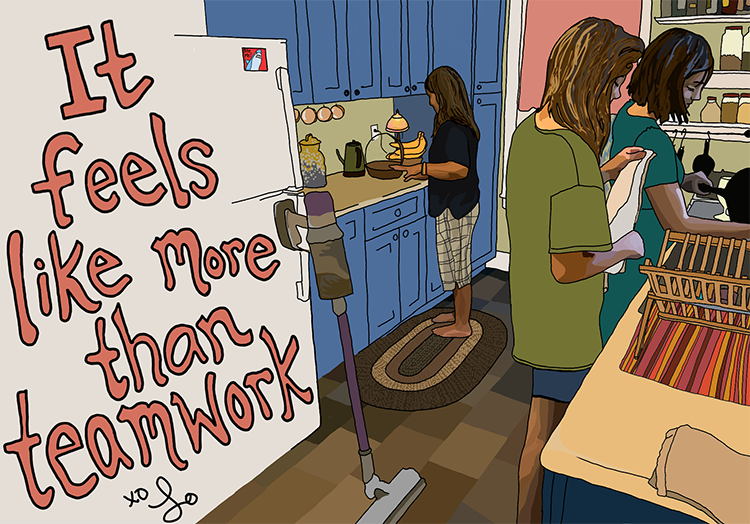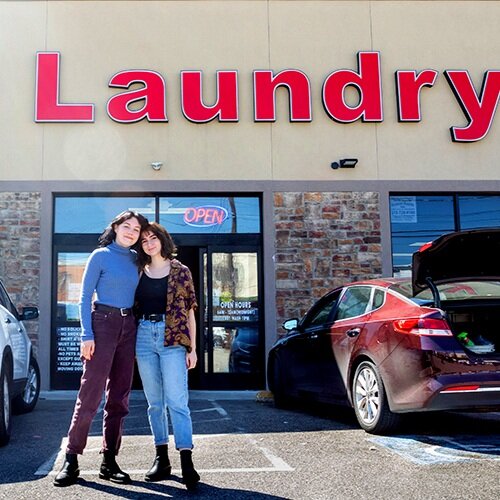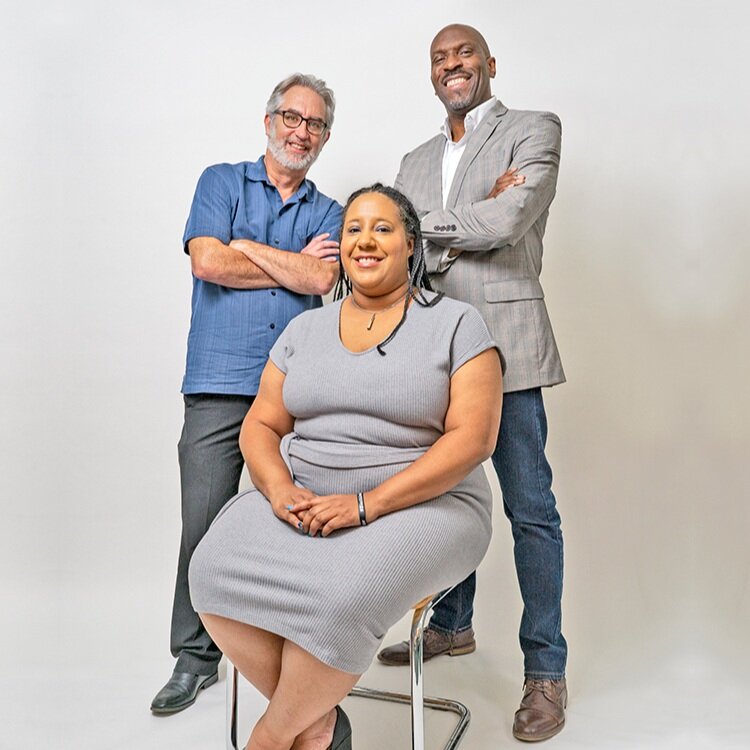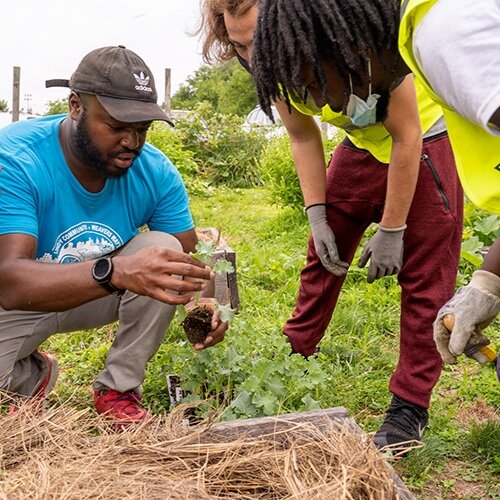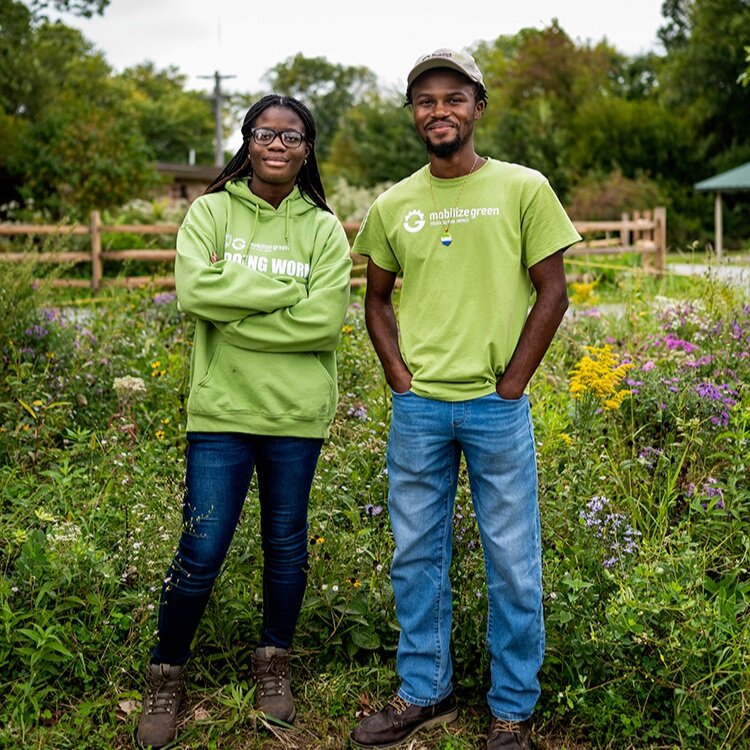By the time our kids move out of the house they should know how to tidy, clean, do their laundry and navigate a kitchen.
I consider this baseline behavior for an able-bodied adult human being. As we watch our children grow, we learn how difficult it can be to teach them these skills. We also have our own set of struggles with domesticity, which makes this a tricky subject for parents to navigate. It’s almost as if we forget that the real work is to raise healthy, functioning, emotionally intelligent human beings whose internal compass points toward love.
There is a temptation for parents to turn a blind eye to how messy their children can be. It is easier to clean up after them, or just leave the mess, than to have a confrontation. But every time we look away and remove ourselves from potential arguments or difficult discussions that we need to have, we perpetuate the behaviors of messiness.
Other times, parents struggle with being an authoritarian figure, commanding that chores be done as a punishment. This way of parenting creates emotional knots around basic living skills by causing children to garner negative feelings for domesticity. In turn, this dampens their desire to help around the house.
We want our children to know how they can make themselves, their homes and the world around them better. Teaching children how to clean up their toys and do the dishes is simultaneously teaching them to take responsibility for themselves and giving them the awareness that love is a verb.
It feels good to love and be loved, and our children should understand this and know how to be a loving household member who can give positive energy back to the family. There is no age requirement here. We are more receptive to familial love when everyone feels like they are supported by each other. We exude more positive energy outside of the home when we feel supported inside its walls.
When we complain about domesticity we give it a bad rap. Children learn from us to dislike housework at a very young age. It’s a hard thing to unlearn—trust me. I am learning and growing as a parent as well.
The goal here is that our homes are loving, safe, creative and restorative places; they don’t always have to be spick and span, but at the least under control. This means that we as parents need to be at peace with the amount of work it takes to raise children. Peace is something the adult has to bring, and the lack thereof should never be blamed on children for merely existing, having needs or being messy.
Parenting is hard work and the sooner that is understood, the sooner we can rise to the occasion with a good attitude. Sometimes the mess has the potential to bring us to our knees; give it a good cry and a prayer while you’re down there, then roll up your sleeves. The house isn’t going to clean itself and you are the grown-up.
We have all heard children bickering over what’s fair. Equality among children is a beautiful thing, although it doesn’t always manifest itself gracefully. It usually means arguing over who gets to do the least amount of work. Understanding that we are all equal yet carry different gifts can help us factor in how we decide to parent at the moment.
Developmentally, as parents, we should be prepared to guide our children to peaceful resolutions to establish what we think a healthy home is. Many times we get so caught up in the drudgery of how overwhelming life can be that we overlook that it’s the parents who need to model healthy cleaning habits for their children, and also be consistent.
I can’t expect my 12-year-old to respond with the same emotional maturity that my 15-year-old does when it comes to doing chores. I can expect my 12-year-old to trust that her sister cares for her and doesn’t want to exploit her labor.
The hope is to tamp down the squabbles around sibling “fairness” and to trust me, their mother, that I love them equally and want them all to be the best versions of themselves. This means that I trust them to be caring and thoughtful toward each other and the household. If they aren’t exercising this behavior, we talk about it. We come together and listen to where we are each coming from and why we feel the way we do. Then together, we craft a solution for love to be experienced. This might mean going the extra mile when we really don’t feel like it.
Talking through domesticity with children is hard. No one wants to be told they made a mess or didn’t do a good job. We also don’t like to feel like we are letting anyone down. It does feel good to be proud of ourselves and a job well done. When teaching our children to have pride in their work, it includes fostering healthy respect for ourselves and the energy it takes to make our homes beautiful places. This means that we need to respect the work of cleaning and maintaining the home, with no exceptions.
To reach a bit further, how do we expect those who will inherit the Earth to care about the wellbeing of our planet if we are not properly teaching them to care about where they live? We must marry our ideals to how we treat our surroundings, those we live with, our communities and the world at large. Raising caring, respectful children will inspire the love that both your home and the planet deserve.
Lois Volta is a home life consultant, artist and founder of The Volta Way. Send questions to info@thevoltaway.com.


